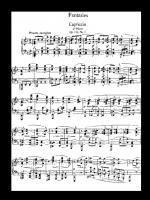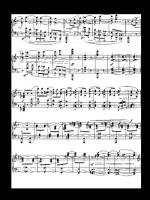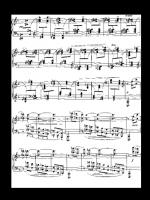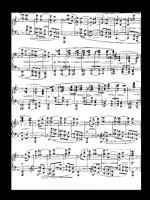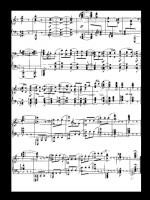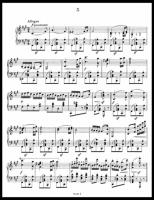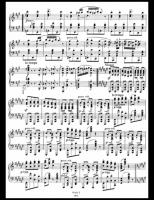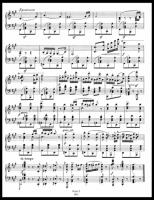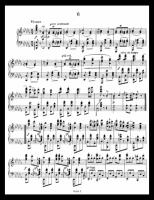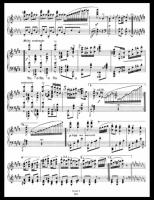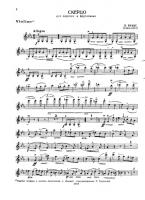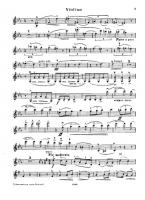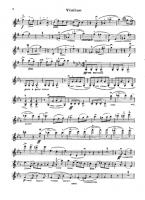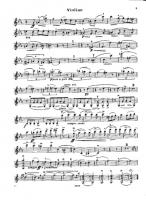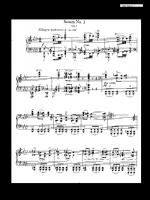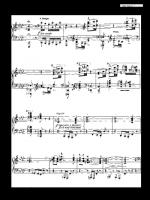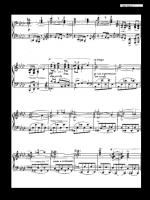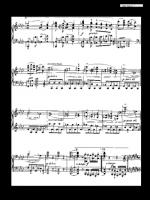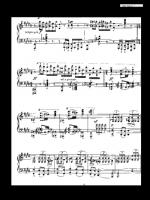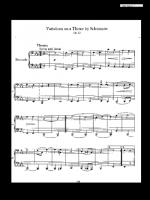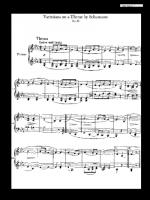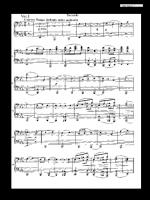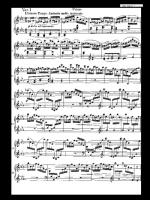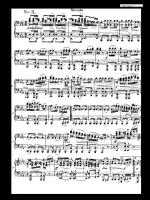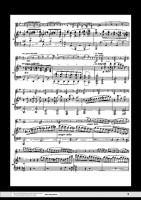Brahms Sheet Music
 Johannes Brahms (May 7, 1833 â April 3, 1897) was a German composer of the Romantic period. He was born in Hamburg and in his later years he settled in Vienna, Austria.
Johannes Brahms (May 7, 1833 â April 3, 1897) was a German composer of the Romantic period. He was born in Hamburg and in his later years he settled in Vienna, Austria.Brahms maintained a Classical sense of form and order in his works â in contrast to the opulence of the music of many of his contemporaries. Thus many admirers (though not necessarily Brahms himself) saw him as the champion of traditional forms and "pure music," as opposed to the New German embrace of program music.
Brahms venerated Beethoven: in the composer's home, a marble bust of Beethoven looked down on the spot where he composed, and some passages in his works are reminiscent of Beethoven's style. The main theme of the finale of Brahms's First Symphony is reminiscent of the main theme of the finale of Beethoven's Ninth, and when this resemblance was pointed out to Brahms he replied that any ass â jeder Esel â could see that.
Ein deutsches Requiem was partially inspired by his mother's death in 1865, but also incorporates material from a Symphony he started in 1854, but abandoned following Schumann's suicide attempt. He once wrote that the Requiem "belonged to Schumann". The first movement of this abandoned Symphony was re-worked as the first movement of the First Piano Concerto.
Brahms also loved the Classical composers Mozart and Haydn. He collected first editions and autographs of their works, and edited performing editions. He also studied the music of pre-classical composers, including Giovanni Gabrieli, Johann Adolph Hasse, Heinrich Schütz and especially Johann Sebastian Bach. His friends included leading musicologists, and with Friedrich Chrysander he edited an edition of the works of François Couperin. He looked to older music for inspiration in the arts of strict counterpoint; the themes of some of his works are modelled on Baroque sources, such as Bach's The Art of Fugue in the fugal finale of Cello Sonata No. 1, or the same composer's Cantata No. 150 in the passacaglia theme of the Fourth Symphony's finale.
Brahms - Intermezzo in A Major op. 118 no. 2 Piano Sheet Music
Advertisement
Advertisement
Please click on the button to get the sheet music
You can share this sheet on your Twitter or Facebook account to let your friends know too!
Comments about Intermezzo in A Major op. 118 no. 2 by Brahms
There are no comments yet
Name (required)
Email (required, will not be published)
Email (required, will not be published)
Total 0/1000 chars
Other music sheets of Brahms
Piano
3
pages
130.02KB - 886d ago



Piano
4
pages
178.31KB - 1811d ago




Search for Free Sheet Music
You can make a search through the entire collection of sheets.
You can make a search through the entire collection of sheets.
Latest Artists
Kingdom Hearts
× 2
Nelly Furtado × 1
Lynyrd Skynyrd × 1
Joe Hisaishi × 2
Ben E. King × 2
Tenmon × 1
Rick Price × 1
Ken Davis × 1
Reynaldo Hahn × 1
Haydn × 1
Kenny Wheeler × 1
Suzuki method × 2
Davy Flowers × 1
Bond Quartet × 2
Enrique Granados × 1
MOISES O. BARMACHEA × 1
Monkey Island × 1
Keith Jarrett × 2
Eric Satie × 4
John Forster × 1
Lenny Lipton × 1
Vincenzo Albrici × 1
Great Teacher Onizuka × 1
Johnny Mercer × 1
Music theory × 5
Asaph Borba × 1
Luigi Boccherini × 2
SS501 × 1
The Phil Collins Big Band × 1
Mussorgsky × 2
Richard M. Sherman × 1
James A. Goins × 1
Leslie Bricusse × 1
Jason Robert Brown × 2
Steven Cravis × 1
Dvorak × 1
Astor Piazzola × 2
Antonin Dvorak × 2
Heitor Villa-Lobos × 1
Carl Nielsen × 1
José María Cano × 1
Franz Schubert × 5
Chris Brown × 1
Rent × 1
Serena Ryder × 1
Nobuo Uematsu × 7
Grant Kirkhope × 1
Chick Corea × 2
Josephine Cheong × 1
Lady Gaga × 5
Nelly Furtado × 1
Lynyrd Skynyrd × 1
Joe Hisaishi × 2
Ben E. King × 2
Tenmon × 1
Rick Price × 1
Ken Davis × 1
Reynaldo Hahn × 1
Haydn × 1
Kenny Wheeler × 1
Suzuki method × 2
Davy Flowers × 1
Bond Quartet × 2
Enrique Granados × 1
MOISES O. BARMACHEA × 1
Monkey Island × 1
Keith Jarrett × 2
Eric Satie × 4
John Forster × 1
Lenny Lipton × 1
Vincenzo Albrici × 1
Great Teacher Onizuka × 1
Johnny Mercer × 1
Music theory × 5
Asaph Borba × 1
Luigi Boccherini × 2
SS501 × 1
The Phil Collins Big Band × 1
Mussorgsky × 2
Richard M. Sherman × 1
James A. Goins × 1
Leslie Bricusse × 1
Jason Robert Brown × 2
Steven Cravis × 1
Dvorak × 1
Astor Piazzola × 2
Antonin Dvorak × 2
Heitor Villa-Lobos × 1
Carl Nielsen × 1
José María Cano × 1
Franz Schubert × 5
Chris Brown × 1
Rent × 1
Serena Ryder × 1
Nobuo Uematsu × 7
Grant Kirkhope × 1
Chick Corea × 2
Josephine Cheong × 1
Lady Gaga × 5






































